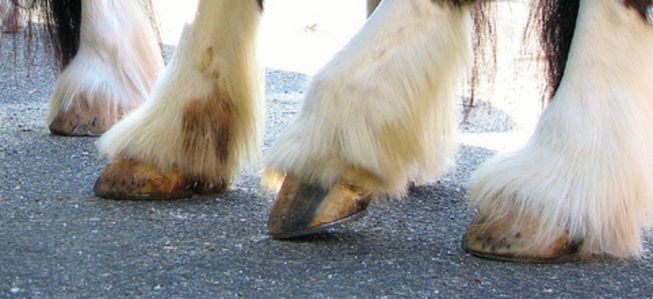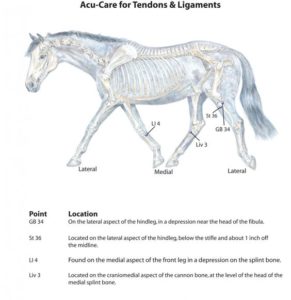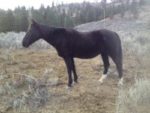Archive for the ‘Horses Health’ Category
10 Good Reasons to Use Homeopathy
Referenced from Riva’s Remedies. Originally posted on the Canadian Society of Homeopaths at www.csoh.ca
1. Natural Action
Homeopathy works by stimulating the body’s own natural defence mechanism to promote health and to resist infection and susceptibility to disease. Although gentle, the results can be powerful and long lasting.
2. Health & Well-Being
Homeopathy improves health generally, rather than merely alleviating localized symptoms. It treats the whole individual, acting on the mental and emotional levels as well as the physical level, providing a balance in overall health and an increased sense of well-being and quality of life.
3. Effective Medicine
When used correctly, homeopathy can be an extremely effective system of medicine, providing long-lasting relief from many acute and chronic conditions and illnesses.
4. No Harmful Side Effects
Homeopathic treatment offers a gentle and non-invasive approach to health, producing no toxic side effects, no dependency or addiction, and no withdrawal.
5. Cost Effective
Homeopathic medicines are surprisingly inexpensive to purchase, especially when compared to over-the-counter and prescription drugs.
6. Fast-Acting First-Aid Relief
Homeopathy can be safely used at home or on the road to provide rapid relief for minor problems such as bruises, simple burns, sprains, insect bites, gastric upsets, etc. However more serious or long-lasting complaints should be treated by a qualified homeopath.
7. Not Tested on Animals
Homeopathic medicines are tested only on healthy humans in order to determine the range of action of each remedy.
8. Complimentary Medicine
Homeopathic medicines can be used independently or along with conventional drugs and other therapies (with the full knowledge of your other healthcare providers). It can often alleviate unpleasant side effects of conventional treatments (e.g., chemotherapy).
9. Environmentally Friendly
Homeopathy has no adverse impact on the environment. There is not waste of energy or natural resources in the manufacturing process and no pollution of the water supply, oceans, or dump sites when used. In fact, homeopathy is the ultimate Green Medicine!
10. Medicine of the Future
Homeopathy is the second most widely-used system of medicine in the world. It is available in most countries and is gaining in popularity as an alternative to conventional medicine.
10 Pointers on Parasites for the Fall season
Reference: Adapted from a similar article posted on www.rivasremedies.com
Fall is a good time to address parasites since once the eggs are swallowed they will prepare to hibernate in the intestinal walls or encyst to other organs for the winter. Below are a few points to keep in mind to keep your horse healthy and parasite free this fall:
- Parasites produce toxins including ammonia; ammonia stresses the liver and kidneys, interferes with brain function and can contribute to laminitis.
- Encysted parasites are those parasites in the larval state that have formed a protective membrane around themselves and have migrated from the hindgut (large colon and cecum) through the intestinal walls and into the liver, kidneys and/or heart/arteries. If left untreated they are capable of causing many health problems: weight loss, a dull coat, poor appetite, diarrhea, fatigue, liver stress, leaky gut and colic.
- Encysted parasites do not usually respond to herbal or homeopathic dewormers, however it is usually either the long-term/heavily infested horses that have a problem with encysts.
- Most horses with long-term and/or heavy loads of parasites are anemic due to the blood loss. Low iron levels have a significant effect on overall health including lowering the resistance to parasites, contributing to chronic infections and depressing the immune system. Cases of anemia should always be treated with Iron-Up, an organic form of iron.
-
Chemical de-wormers, while often necessary, do not always need to be administered as a full dose (i.e. entire syringe) for every horse. Mildly infected horses need less than a full dose and some horses, including those with encysts, will require a small amount repeated two or three times one to two weeks apart. Heavily infested horses also usually require more than one dose.
- It is not necessary to “syringe” a horse with a chemical de-wormer – this is an invasive practice. Smaller doses can easily be hidden in feed and larger doses can be spread out throughout the day also hidden in feed.
-
Do not routinely de-worm your horse with chemicals unless you have a fecal analysis done to determine if it is even necessary. It is not appropriate to use chemicals for prevention.
-
No matter what de-worming program you are using – natural or chemical – make use of regular fecal analyses to show if your program is working or not.
-
The best defense against parasites is a healthy hindgut with a balanced eco-system, adequate levels of important nutrients and a strong immunity.
- Horses with strong digestion and intestines are not attractive to parasites who must rely on weakening their host for optimum survival. In fact, it is estimated that only one-third of the herd actually carries the parasite loads.
Hoof Nutrition for Healthy Hooves

Reference: Excerpts from a blog by Marijke van de Water (Equine Health and Nutrition Specialist) from Rivas Remedies (www.rivasremedies.com)
Horse hooves require tremendous amount of nutrition including protein, sugars, vitamins and minerals. Minerals such as straight sulphur, selenium, and silica are significant in overall hoof health. Silica promotes bone health, strengthens collagen and hardens the hoof wall, while selenium and sulphur contribute to collagen production and strengthen the cross link bonds in the keratin.
Sulphur – the bonding agent
Sulphur is a critical nutrient for strengthening the amino acids (protein units) that serve as major building blocks in healthy collagen to form a strong hoof wall. Obvious signs of sulphur deficiency include poor hoof growth, dry and cracking hooves, poor hair coat, skin conditions and allergies. Sulphur can be supplemented as methionine or as Horsetail herb.
Selenium – a must for hoof health
A selenium deficiency in the hoof can appear as horizontal cracks near the top of the hoof below the coronet band, a yellowing frog and/or lameness due to either weak hoof structure or strained ligaments and tendons. Selenium can be supplemented in either an inorganic form (known as sodium selenite, which is actually a by-product of copper mining) or in an organic form. Sodium selenite is the most common supplement available but is also the toxic form of selenium which is why it cannot be given in extreme doses.
Silica – undervalued and underutilized
Silica is not only critical for the early stages of bone formation but also plays a major role in the formation of the collagen matrix of bone and cartilage. Normally horses obtain small amounts of silica from grass and hay as all plants use silica to provide rigidity and structure to their leaves and stems.
Deficiency symptoms of silica include weak and brittle hooves, sand cracks, abscesses, lameness, inflammation of tendons, and bone weakness with loss of density. Nutrient Sources Some of the best plant sources for silica and sulphur supplementation is horsetail and oatstraw. Horsetail has a number of other benefits: strengthens the respiratory system, improves skin and hair coat, aids urinary function and increases calcium absorption. Poor hoof circulation is always a factor in unhealthy hooves since improper hoof mechanism constricts blood supply and therefore the delivery of oxygen and nutrients. Horse hooves are very much a reflection of the whole and the treatment of the hoof should always consider the whole health of the horse. Conversely, treating the whole health of the horse will always benefit the hoof.
Caring for Tendons & Ligaments with Animal Acupressure

Horses, dogs, and cats need exercise as much and maybe even more than we do. The living body is designed to move so that bones, muscles, tendons, and ligaments stay strong and healthy. Internal organs need movement to function properly. To keep your animals happily on the move it’s wise to pay attention to their tendons and ligaments.
Tendons and ligaments need to be flexible because they are the “rubber bands” which hold the body together. Without these rubber bands the body would be immobile. Each of these soft body tissues performs an absolutely essential and distinct role:
Ligaments are the strong bands, cords or sheets that connect to bones or other anatomical
structures. Ligaments:
• Support joints and hold bones in place
• Support and strengthen other ligaments, and,
• Bind tendons close to joints.
Tendons are cord-like bands that connect muscle to bone. Tendons are involved in
movement: when a muscle contracts, or shortens, the tendon pulls on the bone causing the structure to move.
Your job is to help your animals to keep moving and enjoying their lives. When your horse or dog is fit, he’s less likely to experience injury or illness. And, to keep him fit, his tendons and ligaments need to be both supple and strong. There are a number of ways you can support his general fitness.
Go slowly and warm- up his muscles, joints, tendons and ligaments before heavy exercise. Training on uneven terrain and going up and down hills to develop well rounded and balanced muscling. A weekly acupressure session focusing on flexibility and building strength of tendons and ligaments can greatly enhance your animal’s fitness.
Below are two Acu-Care for Tendons & Ligaments charts identifying acupressure points you can stimulate to consistently support your animal. The canine chart can be used for both dogs and cats. Give you horses, dogs, and cats the benefit of this acupressure session every 5 to 7 days and you will be to enjoy your exercise together.
Natural Healing Therapies – Amazing Chia Plant (Part 2)
Reference: HolisticHorse.com – Andrea Baldwin is an Herbalist and lifelong horse advocate. She is currently studying at David Winston’s Center for Herbal Studies to expand her clinical knowledge. Andrea is also pursuing her practitioner certification in Equine Acupressure with Tallgrass Animal Acupressure Institute.
Last week, we discussed some of the amazing benefits of Chia Plant. We continue and complete the series today in Part 2. Read on and let me know your experiences too.
Hydration
Chia seeds’ ability to absorb up to 12x their weight in water can help your horse stay hydrated. The balance of electrolytes in the body is assisted by the chia seed’s ability to retain moisture, slowing carbohydrate consumption, a plus for endurance or performance horses.
Antioxidants
Chia seeds are high in antioxidants including the flavonoids quercetin and kampherol, which are both anti-inflammatory and help to reduce free radicals in the body. The high levels of antioxidants in the seeds help to stabilize the EFAs in the seeds from rancidity, and not lose their nutritional value, giving it a long shelf life in your feed room.
Minerals
Chia seeds contain small amounts of calcium, phosphorous, magnesium, potassium, zinc, iron, manganese and boron (boron and magnesium work together to increase calcium absorption).
Sacred and Powerful
Historically, chia seeds were considered sacred, used in religious ceremonies and a staple in the diet of the Southwest Native Americans, Aztecs and Mayans. Aztec warriors were able to run long distances powered only by small amounts of chia seeds and water. The commonly known name of Chia was translated from the Aztec word ‘Chian’ which means oily, while the Mayan translation comes from the word ‘Chiabann’ meaning strengthening.
The seeds of the chia plant offer numerous health benefits for your horse packed into a tiny palatable seed.
Disclaimer: We always recommend consultation with your equine vet prior to using any of these natural products. They are not meant to replace vet care.
Natural Healing Therapies – Amazing Chia Plant (Part 1)
Reference: HolisticHorse.com – Andrea Baldwin is an Herbalist and lifelong horse advocate. She is currently studying at David Winston’s Center for Herbal Studies to expand her clinical knowledge. Andrea is also pursuing her practitioner certification in Equine Acupressure with Tallgrass Animal Acupressure Institute.
Small seed packed with big benefits
Chia, a cheerful upright plant that can grow to a height of about 3 feet, has a square shaped stem and oblong pointed bright green leaves.
Chia (Salvia Hispanica), a member of the mint (Lamiacea) family, prefers well drained soil and a sunny location. The small blue flowers bloom on a cylindrical spike-like head in random order. The seeds require a long summer to mature and have a cool and moist energy. This plant grows well in parts of South America and subtropical climates like Bolivia and Ecuador.
The tiny brown and white seeds of the Chia plant are packed with nutrition, antioxidants, fiber, amino acids, vitamins and essential fatty acids.
Amino Acids
Amino acids are vital for almost all body functions of a horse. Amazingly, chia seeds have 18 of the 22 amino acids required by a horse, including 9 essential amino acids and the complementary nonessential amino acids in proper proportions. Pretty impressive for such a small seed!
Essential Fatty Acids – High Omega 3
Chia seeds are high in omega 3 fatty acid, having a 3:1 ratio of Omega 3 to Omega 6 essential fatty acids. This balance of EFAs makes chia seed a strong anti-inflammatory, as well as boosting immune function, supporting healthy skin, hooves, mucous membranes and shiny coats.
Fiber and Mucilage
When soaked in water, chia seeds form a polysaccharide rich, thick gel coating that can help your horse in a few ways. First, it is helpful for clearing sand, much like psyllium. Both soluble and insoluble fiber in chia seeds help sweep debris out of the intestines. This gel also helps to heal gut mucosa, reducing inflammation, which would be beneficial for a horse with ulcers. Another benefit of the gel is slowing down the absorption of sugar by the body, helping to keep blood sugar levels more balanced. A clinical animal study (www.ncbi.nlm.nih.gov/pubmed/24120122) showed prevention and reversal of insulin resistance that had been caused by a high sucrose diet, suggesting chia seed could be helpful in the diet of metabolic horses.
Disclaimer: We always recommend consultation with your equine vet prior to using any of these natural products. They are not meant to replace vet care.
Healing with the Marijke Method – An Online Radio Show for Healing People, Horses, Dogs & Cats

This Wednesday, February 26th 2014, don’t miss the online radio show, Healing Horses Naturally by Marijke van de Water.
Learn how to heal common horse health conditions with diet, nutrition, natural remedies and supplements. Colic, bloating, gas, injuries, infections, colds, flus, arthritis, skin conditions, allergies, hormonal imbalances, liver conditions and a variety of other ailments that horses are prone to.
Listen to Marijke live every Wednesday at 11 am PST (2 pm EST). www.toginet.com. Call in with your questions and comments 1-866-404-6519. Can’t make the show? Download Podcasts. Click Here for Podcast Health Topics and More Show Info
Marijke van de Water, B.Sc., DHMS Marijke is a Health & Nutrition Specialist, Homeopathic Practitioner, a gifted Medical Intuitive and Healer, Author & Educator. She considers food, natural medicine and energy healing as “mainstream”. Marijke has over two decades of clinical experience in private practice helping people and animals regain optimum health. She has guided thousands of success cases.
Holistic Horse Health: Is Stress Affecting Your Horse’s Liver? (Part 3)
See below for more thoughts from Madalyn Ward, DVM, on the topic of stress and how it affects a horse’s liver function.
~~~~~~~~~~~~~~~~~~~~~~~~~~~~~~~~~~~~~~~~~~~~~~~~~~~~~~~~~~~~~~~~~~~~~~~~
Solutions for Coping with Stress
High chlorophyll foods such and blue green algae have a protective and cleansing effect on liver tissue. Blue green algae and sprouted greens are also high in natural antioxidants which aid the liver in detoxifying the body.
Certain nutritional mushrooms such as Maitake, Poria, Reishi and Cordyceps aid the liver by helping to lower sugar levels in the blood. Green foods in combination with nutritional mushrooms and spouted greens support the liver and kidneys in their roles of removing toxins from the body. Exercise is also critical for helping the Liver to move Qi and to lower insulin levels in the blood.
Liver support:
• Homeopathic Nux vomica
• Milk thistle and dandelion root
• High chlorophyll foods such as blue green algae and sprouted greens
• Nutritional mushrooms
• Exercise
Stress is part of many horses’ lives but its damaging effects can be kept to a minimum with proper support for the digestive tract and liver. In addition to the stress lowering steps mentioned in last month’s newsletter you may also want to consider your horse’s temperament. Different type and temperament horses respond differently to stress and will need different support for best results.
Check out Horse Harmony to help you determine your horse’s temperament type and look at our Feeding Guide to help select the best products for your horse.
References: Dr. Greer GI seminar, Nov 2013
More from Madalyn Ward, DVM:
www.holistichorsekeeping.com
www.horseharmony.com
www.horseharmonytest.com
blog.horseharmony.com
http://www.facebook.com/HorseHarmony
Twitter: @madalynward
Holistic Horse Health: Is Stress Affecting Your Horse’s Liver? (Part 2)
See below for more thoughts from Madalyn Ward, DVM, on the topic of stress and how it affects a horse’s liver function.
~~~~~~~~~~~~~~~~~~~~~~~~~~~~~~~~~~~~~~~~~~~~~~~~~~~~~~~~~~~~~~~~~~~~~~~~
Chronic Stress and the Liver
Chronic stress in horses not only causes excess fat to accumulate in the external tissues but also in the internal organs such as the liver. A fat filled liver can’t perform its critical functions. Signs of poor liver function include general fatigue and lack of focus. Poor digestion is related to lack of bile production. Edema can occur as toxins build up in the tissues and lymphatic system.
In Traditional Chinese Medicine(TCM) the Liver is responsible for the smooth flow of Qi so general stiffness and chest pain are also signs of liver stress. TCM also looks at the liver as the organ that helps one adapt to one’s environment so poor liver function can be related to allergies.
Signs of poor liver function include:
• General fatigue and lack of focusing ability
• Poor fat digestion
• Edema
• Stiffness and chest pain
• Allergies
Solutions for Coping with Stress
In our last newsletter we talked about what causes stress in horses and how to avoid stress when possible. For some horses chronic stress is part of their lives so steps must be taken to support good liver function in spite of it. Nux vomica is a classic homeopathic remedy that helps with liver stress from toxin build up or overeating. Nux is wonderful to help horses showing signs of stocking up or mild impaction colic. Nux is also helpful for horses showing irritability. Herbs that support liver function include milk thistle and dandelion root. Milk thistle can actually help damaged liver tissue regenerate and dandelion root will help with bile production.
More from Madalyn Ward, DVM:
www.holistichorsekeeping.com
www.horseharmony.com
www.horseharmonytest.com
blog.horseharmony.com
http://www.facebook.com/HorseHarmony
Twitter: @madalynward
Holistic Horse Health: Is Stress Affecting Your Horse’s Liver? (Part 1)
See below for an educational and informative article from Madalyn Ward, DVM, on the topic of stress and how it affects a horse’s liver function. This is part 1, stay tuned for part 2.
~~~~~~~~~~~~~~~~~~~~~~~~~~~~~~~~~~~~~~~~~~~~~~~~~~~~~~~~~~~~~~~~~~~~~~~~
Last month we talked about how stress can cause ulcers in horses and this month I want to talk about how stress in horses can affect liver function. Liver health is essential for proper digestion, sugar metabolism, hormone production and detoxification. Stress and liver health are connected through the hormone, insulin. Occasional stress will strengthen the body’s defenses but chronic low grade stress will have the opposite effect. The liver is particularly damaged by chronic stress.
Critical liver functions in the body:
• Fat digestion
• Sugar metabolism
• Hormone production
• Detoxification
How Stress Affects the Liver
Stress in horses causes an increase in the hormone cortisol which causes the liver to release glucose into the bloodstream and if there is a real danger then the glucose activates the fight or flee response. If the danger is not real but more of a chronic trigger then the body must produce insulin to lower the glucose levels in the blood. One way that insulin lowers sugar levels is to convert the sugar into fat. When sugar and insulin levels drop back to normal, the fat can be broken back down for energy but when stress is ongoing, insulin levels never drop to normal and fat can’t be broken down even
with strict diets.
Normal stress reaction — increased cortisol — increased sugar released into bloodstream by liver — sugar used up by body energy output
Abnormal or chronic stress reaction — increased cortisol — increased sugar released into bloodstream by liver — insulin released by pancreas to lower sugar levels — sugar turned into fat which is deposited in tissues including the liver — weight gain, poor liver function, inability to breakdown fat stores.
More from Madalyn Ward, DVM:
www.holistichorsekeeping.com
www.horseharmony.com
www.horseharmonytest.com
blog.horseharmony.com
http://www.facebook.com/HorseHarmony
Twitter: @madalynward


